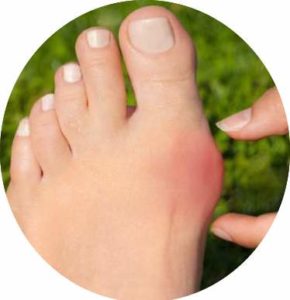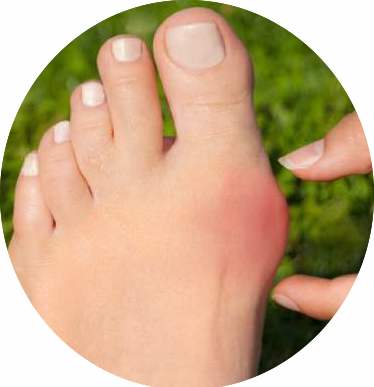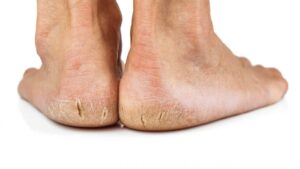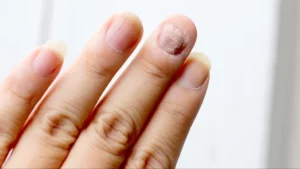 Bunions are deformities that develop on the big toe of your foot. Foot bunions can be caused by genetic factors, arthritis, and lifestyle habits such as wearing narrow shoes; these deformities develop over a long period of time. Bunions can very uncomfortable, causing pain and swelling that makes it difficult to walk or support your weight on the affected foot.
Bunions are deformities that develop on the big toe of your foot. Foot bunions can be caused by genetic factors, arthritis, and lifestyle habits such as wearing narrow shoes; these deformities develop over a long period of time. Bunions can very uncomfortable, causing pain and swelling that makes it difficult to walk or support your weight on the affected foot.
Treatment Options
In severe cases, patients might need bunion surgery. However, there are many simple measures you can take to relieve the symptoms caused by foot bunions. Some of these measures for Bunion Treatment:
- Wearing appropriate footwear. Narrow, pointed shoes are one of the main reasons that people develop bunions; they are also the reason why foot bunions are more common in women. Wearing the right shoes is essential both for the prevention and treatment of bunions. Make sure your shoes fit properly, have good arch support, and have an ample toe box. If you are wearing open-toed heels, make sure they have an ankle strap. This will help support your feet and keep them from sliding forward, which can put extra pressure on your toes.
- Use pads. Something as simple as placing a moleskin or gel pad inside your shoe, over the bunion, can provide great relief. These pads are meant to cushion the joint and absorb friction, which in turn reduces pain and swelling. Podiatrists advise patients with nerve damage or poor blood supply –for example, diabetic patients- to avoid medicated pads, since they can damage the skin.
- Place orthotics inside your shoes. There is a wide array of orthotics available on the market. These orthotics are meant to correct the faulty mechanisms that cause foot bunions; by wearing the, you will not only get pain relief, but in some cases, the progression of your bunions will also slow down. You can also visit your podiatrist to be fitted with custom orthotics, but this option will be more expensive.
- Over-the-counter medications. NSAIDs, such as ibuprofen or naproxen, are easy to get and will help relieve both the pain and swelling caused by your foot bunion. These drugs can cause side effects such as stomach ulcers, so use them sparingly. Your podiatrist can also inject steroids, such as cortisone, into the affected joint. Although the effect of these drugs is only temporary, they will relieve your symptoms.
What You Can Do
It’s always better to take good care of your feet and prevent bunions from developing at all; however, if you already have a foot bunion, these simple measures can help improve the symptoms you are experiencing. Don’t forget to make an appointment with your podiatrist, who will be able to recommend other measures to improve and correct your bunions.










